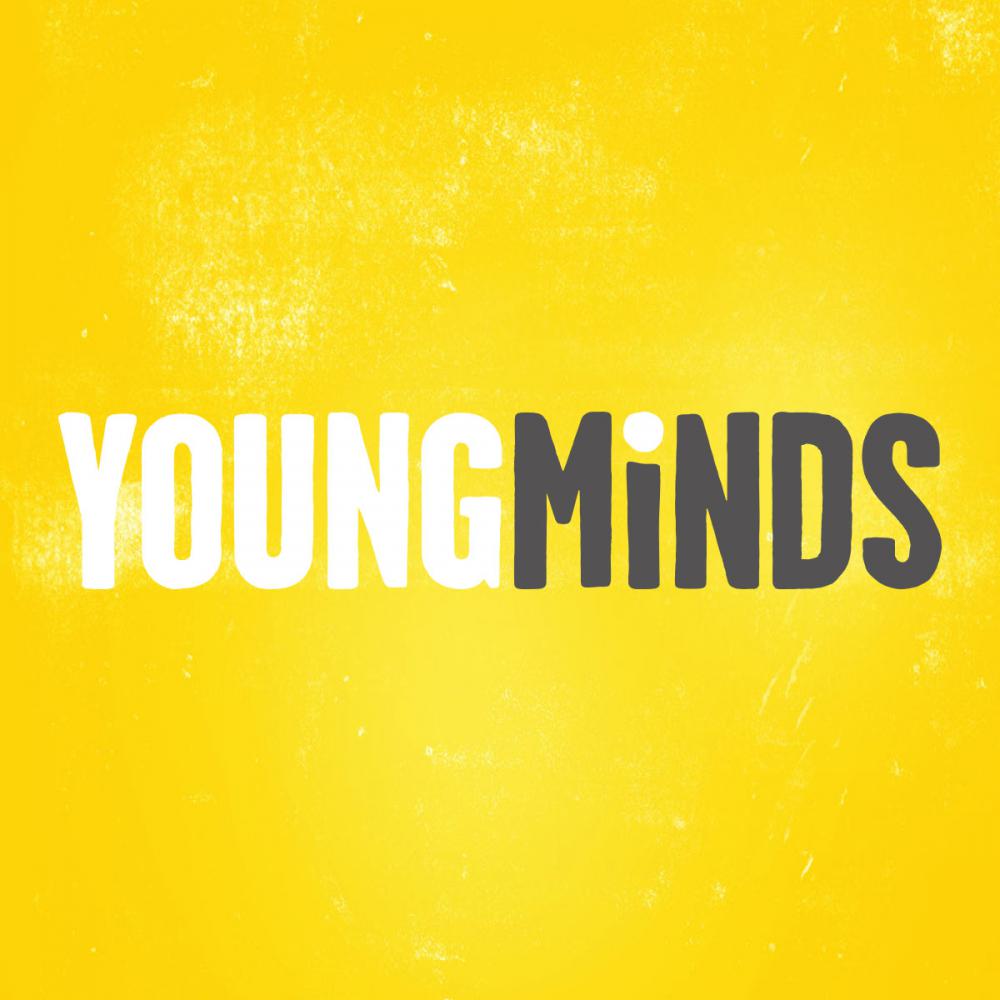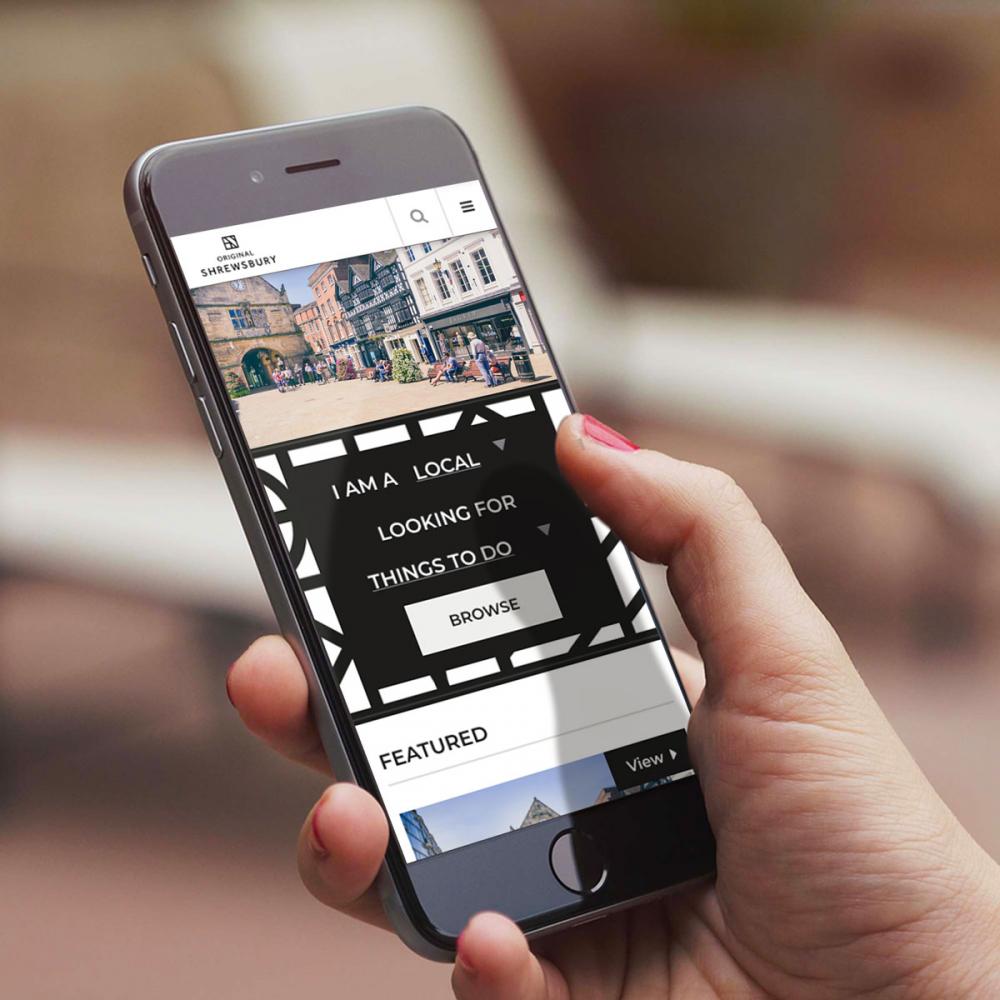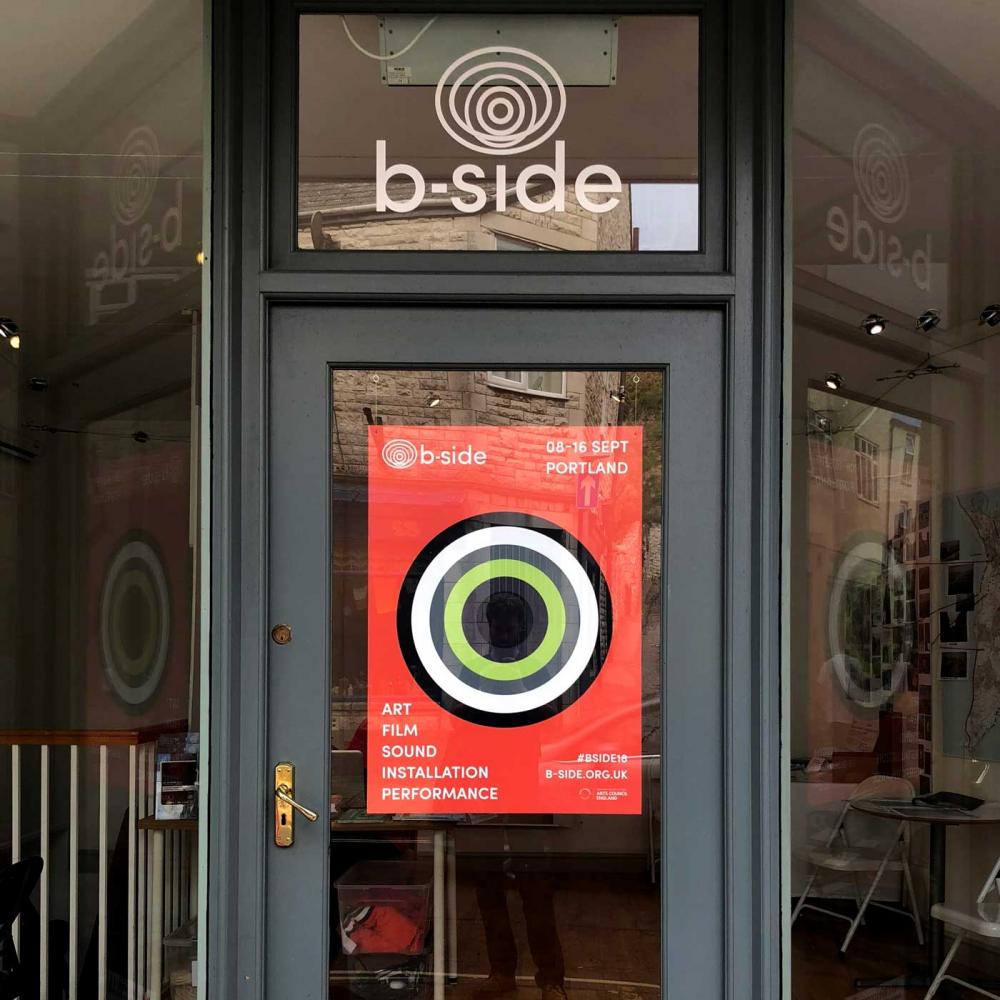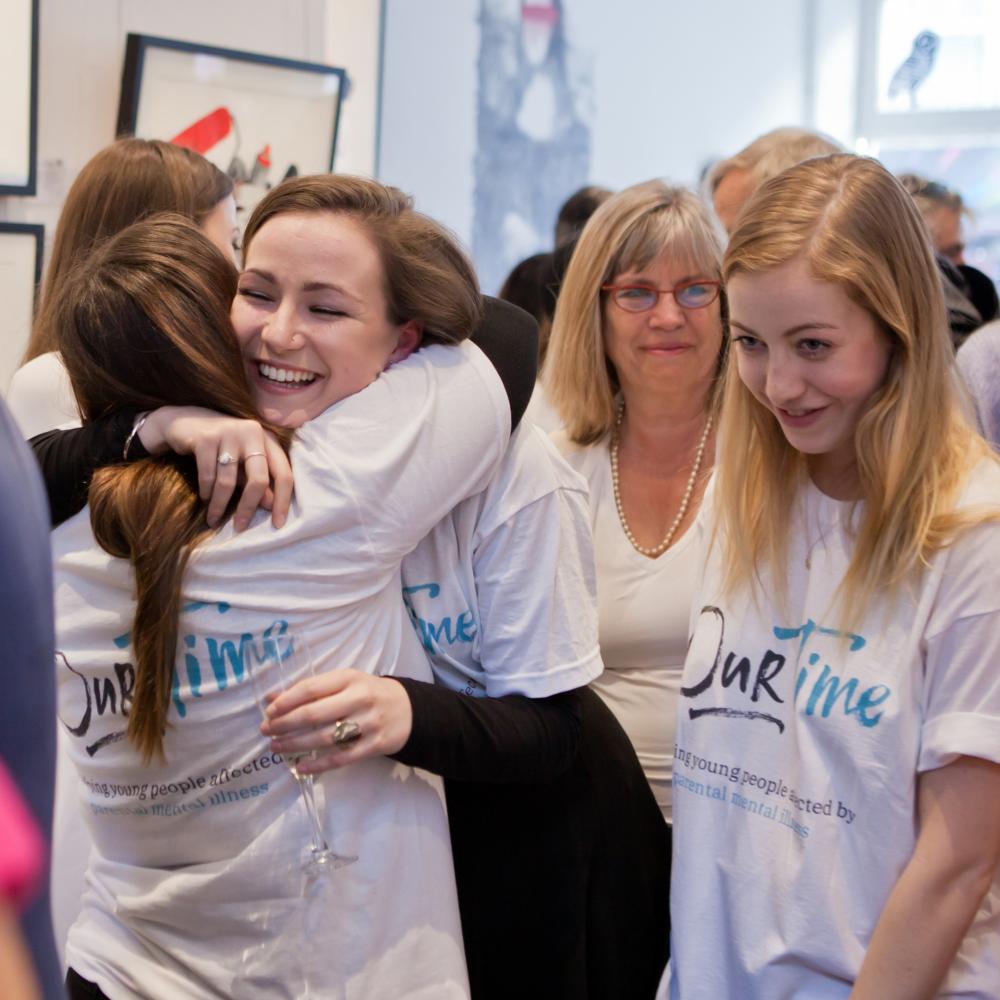19th May 2020 by Chloe Roach
Over the last few months, many charities, businesses and social enterprises have been forced to adapt to the new reality of working together and with others remotely. At first it was fun. We all had themed video meetings and turned ourselves into talking potatoes on Zoom. And now, well… Screen fatigue anyone?
In all seriousness, given that a lot of the organisations we work with provide services or opportunities in person, it’s clear just how big the challenge is. But I do also want to acknowledge that for some organisations it’s been an opportunity – and I’m not just talking about corporate giants – naming no names – cashing in. A lot of the clients we speak to are implementing new systems and ways of working that may actually help them to be more agile in future, with greater resilience and the potential to expand or diversify what they’re doing.
And we’re no different. We’ve been working remotely as a team for years but, up until recently, we always ran our workshops in person. And we like that – sharing biscuits and bananas, and getting to meet 3D people. But in the last few months we’ve had to rethink all of that to keep our projects moving.
We did quite a lot of planning for our first online brand workshop, which used a combination of Miro and Google Hangouts, but being pretty new to it all we weren’t sure of how successful it would be. So imagine our surprise when it was actually pretty good – perhaps one of the best workshops we’ve ever run. Farewell biscuits, hello Tron!
There’s a lot to think about when you’re running an online workshop and we learnt a lot along the way, so here are a few pearls of wisdom you might find useful.
Stick to your guns
It may be online but our basic principles of running a workshop stayed the same:
- Make sure everyone has the chance to contribute
- Pace the group and don’t overwhelm them
- Encourage the group to think positively, creatively and support each other
- Use a process that’s exciting and stimulating
- Keep in mind what you are trying to achieve
Don’t put too much pressure on yourself
Lockdown and coronavirus is already stressful enough without adding lots of pressure to deliver a flawless workshop. The reality is that there are always going to be teething problems, but as long as you’re prepared for a few hiccups (usually technical!) along the way and keep calm, you’ll be okay.
Plan!
If there’s one thing I can’t emphasise enough it’s planning. Giving your group enough time to familiarise themselves with any online tools you’re using is essential. Set them a task beforehand to warm them up – be sure to keep it light! Make sure everyone knows who’s doing what, where they can go to for help and what the agenda and purpose of the workshop is. It sounds basic but it’s easy to take certain things for granted.
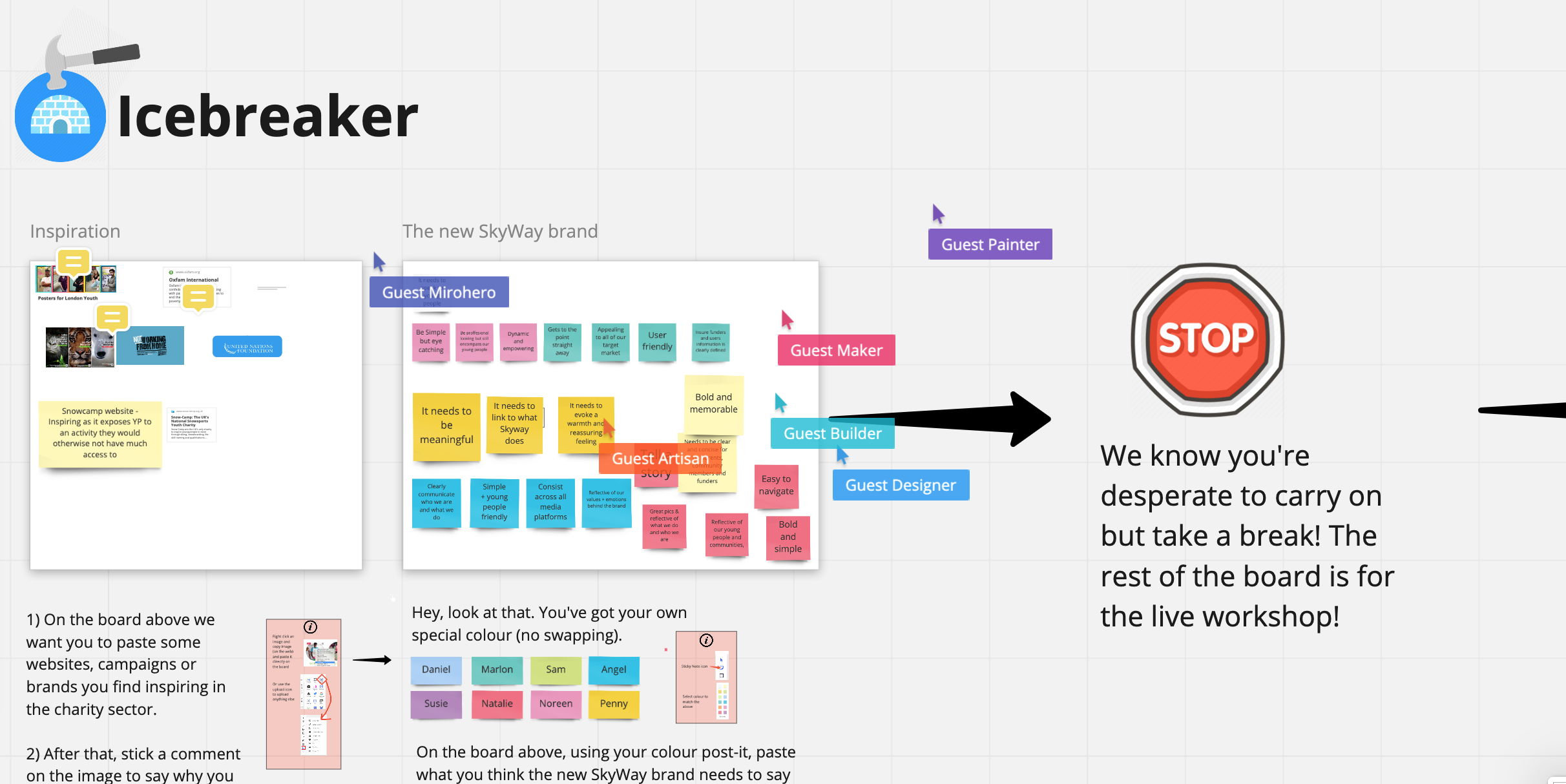
We wanted to get the whole group thinking and engaging with the brand project before the workshop, so we gathered their initial thoughts through an online questionnaire. This really helped to focus the workshop and fed into our planning process. We then gave the group access to an online icebreaker a few days before the workshop, so they could experiment, add initial ideas about what their brand needed to do, and images of other brands they found inspiring.
Be mindful of different skill sets
Not everyone is a nerdy whizz-kid when it comes to technology so, while using fancy tools may seem fun to you, it might be completely overwhelming for someone else. The key is to keep it simple and easy for everyone to use, not just the technophiles.
Varied content
Just like live workshops, it’s important to keep things interesting. Making it creative and engaging is essential. This can be tricky when you’re also trying to keep it simple but, I assure you, it is possible.
Give someone the role of technical support
Having someone on hand to respond to any technical hitches means the facilitator can keep the session moving without becoming fixated on any minor problems. It’s also useful to have someone responsible for muting microphones in the main group Hangout, particularly during breakout group sessions or solo activities.
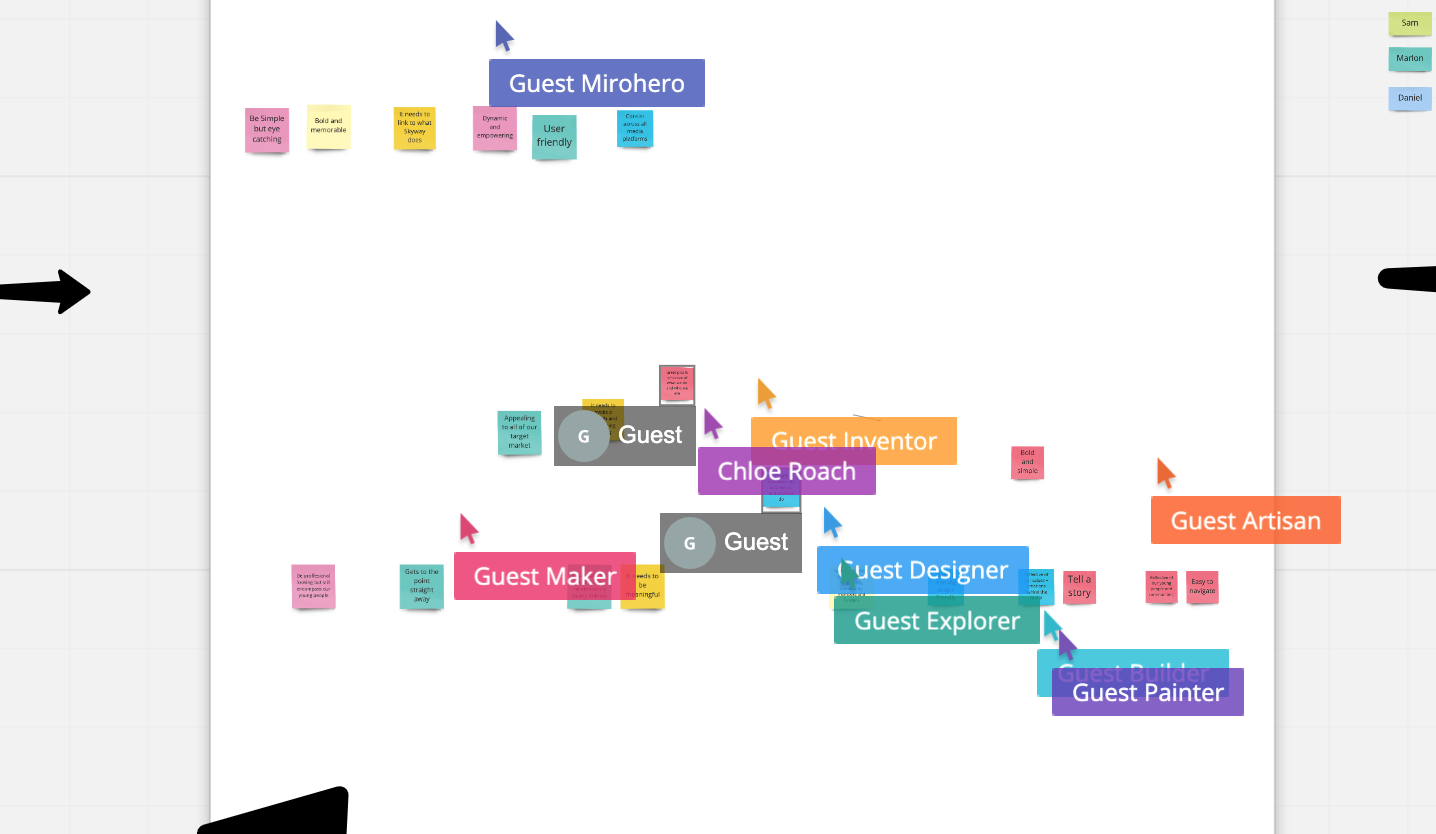
Clear labelling
If you’re using an online whiteboard or a space the group can move around and interact with, make sure everything is clearly labelled – particularly if you have multiple activities within the workshop.
Take regular breaks and be flexible with the group
This is a new way of working for lots of people. Many people will have family playing hide and seek in their new office space or just need to take a break from the screen more often. It’s important to give people the freedom to do what they need to do and factor in regular breaks.
Be prepared for it to move at a slower pace
Used to sprinting through your workshops? Think of this as more of a three-legged race. You might have to allow for a bit more time than usual. Making sure the group has the opportunity to keep up, feel involved and has clarity about what they are doing is important and you need to make allowances for that.
Keep the conversation flowing
There may be times in the workshop where members of the group are undertaking a task quietly at their own pace, but equally there should be opportunity for discussion and debate.
One member of our workshop told us that although the workshop was being delivered remotely, he actually felt there had been a higher level of engagement and input from the whole team. So there you have it. Our quick guide to running online workshops. So stay positive and don’t be put off by the lack of shared biscuits.
If you want guidance on running your own workshop or you’ve put plans for a design project on hold because you think remote working presents too many obstacles, feel free to drop us a line or pick up the phone. We’re always happy to discuss how we can help.


